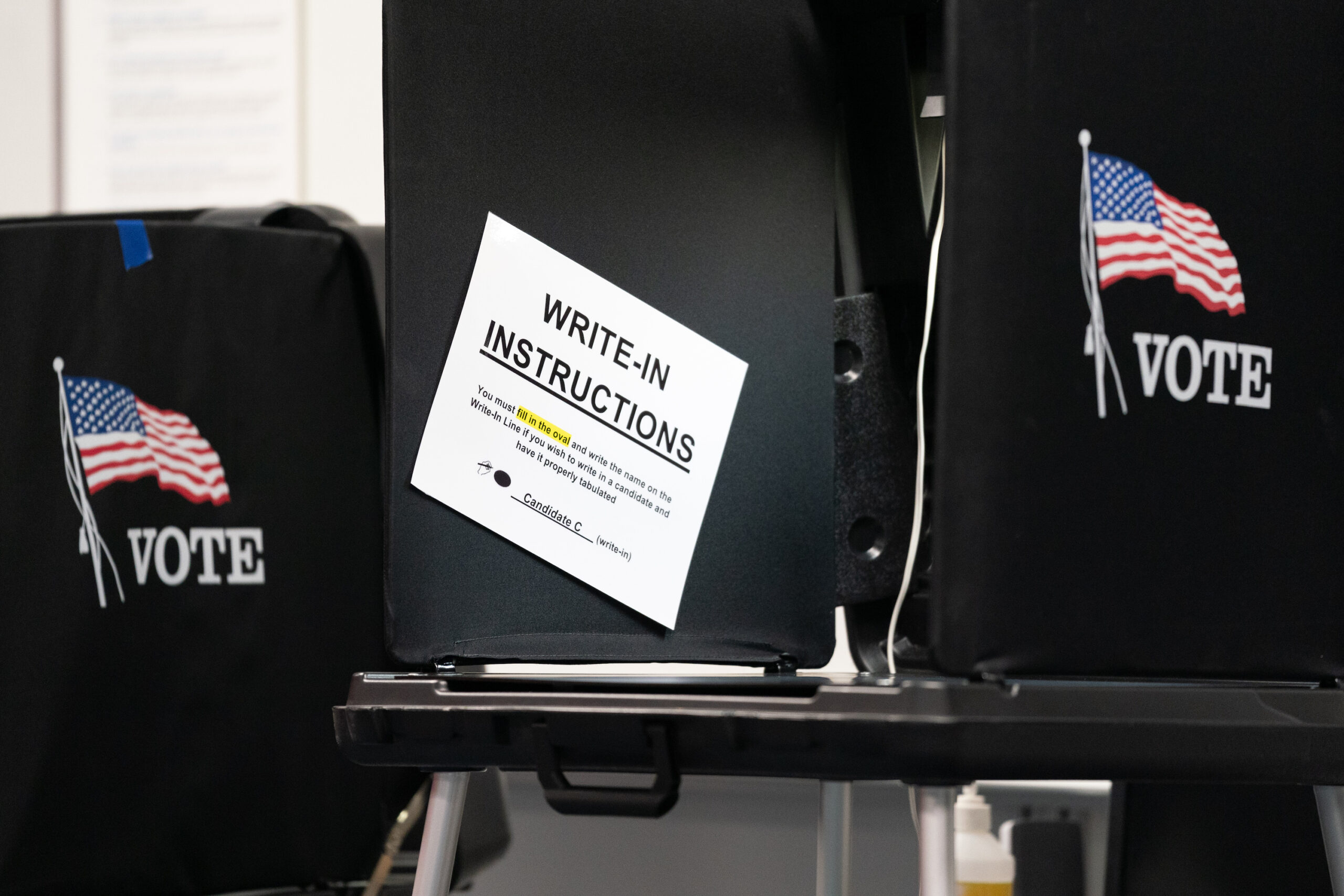Originally published November 16, 2022
https://www.newsweek.com/competing-forces-electoral-process-opinion-1759751

You don’t need to be a Republican voter disappointed with the results of the midterm elections to know our country’s voting system is broken. Democratshave spent years complaining that elections are rigged, that democracy is in danger, and that every vote could be our last. Republicans look at the endless counting procedures of states like Nevada and Arizona, which all seem to shift in one political direction, and are racked with conspiracy theories and doubt.
On the scales that make up the electoral process, there are two clear and competing sides. On one side is ease of voting; ensuring that people can exercise their civic responsibility in a timely manner. This was a major issue for well over a century of our nation’s existence, as voting was not only difficult, but impossible for certain groups. On the other side of the scale is having an informed electorate; which requires that candidates be visible and accountable to the voters, debate each other, and make their cases to earn the votes that get them elected. When these two competing factors are in balance, there is trust in the system. When they are out of balance, especially to an extreme, trust erodes and the system falls apart.
Democrats put all their focus on ease of voting. The reason for this is simple: they have the money and the means to gather as many ballots as possible in a small area. The Democrats are an urban party, and are the party of the rich and the young. So if they need volunteers, they have plenty of college students willing to help them out. If they need funds, there are plenty of billionaires ready to throw them money. Most importantly, if they need to gather votes, they can do so in a small area.
The Washington Post gleefully described how Gen Z helped stop this cycle’s predicted red wave. It is estimated that 27 percent of young adults voted in this election. In Pennsylvania, they voted 70 percent in favor of Lieutenant Governor John Fettermanover Dr. Mehmet Oz. The Washington Post acknowledges that they aren’t just a voting base:
Gen Z’s allegiance is to issues, not to specific political parties or candidates, said Kenisha Mahajan, a 17-year-old advocate for political and community engagement. Gen Zers are most motivated by candidates who plan to address climate change, gun violence, reproductive rights, racial justice and LGBTQ rights, activists and candidates say.
Seventeen-year-olds cannot vote, but they can knock on doors, hand out literature, make phone calls, and gather ballots. This is why 125 House Democrats voted to lowerthe voting age to 16. They’ll get the activism plus the votes.
Democrats also have the advantage of funding. In Nevada, Democrat Catherine Cortez Masto outspent Republican Adam Laxalt by almost four to one ($46 million to $12 million). In Arizona, Mark Kelly outspent Blake Masters by eight to one ($73 million to $9 million). In Pennsylvania, sweatshirt-wearing man of the people Fetterman spent $52 million, while crudité-eating, 10-house-owning Dr. Oz spent $38 million. The Georgia race is going to a runoff, but so far Democrat Raphael Warnock has spent $76 million to Republican Herschel Walker’s $32 million. In New Hampshire, Maggie Hassan outspent Don Bolduc almost 20 times over: $38 million to $2 million.
These are just the major Senate races that, until a week ago, looked like they could go Republican. The disparities for congressional and gubernatorial races are similar. Instead of looking at polling, political gamblers could have looked at financial disclosure forms.
So when you have all the volunteers in the world, and you have all the money in the world, what’s the voting procedure that most benefits you? One that emphasizes ease of voting, with a month of ballot requests, plenty of drop-off sites, and weeks of early in-person voting, not to mention same-day registration and no voter IDs requirements. This way you can mobilize your army, focus your attention, and have small cities make decisions for large states.
How many people actually need to vote absentee or early? Even taking high estimates, the entire country has around 1.16 million nursing home residents. Active-duty military, another recipient of mail-in ballots, topped out at around 1.39 million. Millions and millions of absentee ballots were requested, filled out, and processed in this election cycle. In Maricopa County in Arizona, an estimated 80 percent of voters—almost 2 million—cast absentee and early votes. People didn’t need them, but they make voting easy.
This approach yields strong results for the Democratic Party, but is it good for the trust that we’ve built our system on? Yes, we can get people to vote, but do they know who they are voting for, or any of the issues at stake? Let’s take the logical extremes of the “ease of voting” versus “informed electorate” debate. Universal, unrequested, voting by conducting door-to-door surveys, like they do with the census, would be “easiest” for the voter. A civics test that requires voters to know the candidate and the issues on the ballot would ensure the voter is most “informed.”
Neither of these extremes would instill integrity and trust in elections. Door-to-door ballots are rife with risks of fraud or persuasion by the collector. Civics tests could be designed to keep only a handful of people eligible to vote. Trust would be broken.
Yet while we would never dream of turning the ballot into a civics test, we are going further and further towards the door-to-door model of voting. Is that really an informed electorate? Are the candidates making their pitches? Look at some of the high-profile races in the 2022 election cycle. Democrats like Kathy Hochul in New York, Fetterman in Pennsylvania, Katie Hobbs in Arizona, Abigail Spanberger in Virginia, and others either avoided debates completely or scheduled a single debate well after hundreds of thousands, or even millions, of ballots had been cast. It’s very conceivable for a Democrat to pull a Joe Biden and hide in the basement for an entire campaign. Is that an informed electorate, or representational democracy?
The issue with the electoral process in this country is that no one trusts each other, yet policies that decrease trust are being maintained or even expanded. There’s also zero evidence that streamlining voting procedures has a deleterious effect on the number of voters. Georgia, for example, was accused of instituting “Jim Crow 2.0” when it passed its voter laws, and it only led to record turnout. Will Biden apologize to Brian Kemp, or will Major League Baseball reimburse the city of Atlanta all the lost revenue from moving its All Star Game? Of course not.
Every state must determine for themselves if their voting procedures are leading to trust in the system. Otherwise, that trust will continue to erode, with no hope of recuperating.
Moshe Hill is a political analyst and columnist. An archive of his columns could be found at www.aHillwithaView.com. He can be found on Twitter @HillWithView




